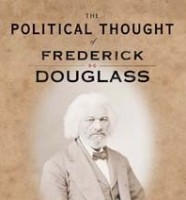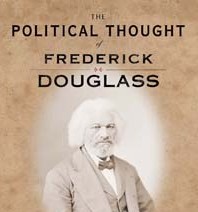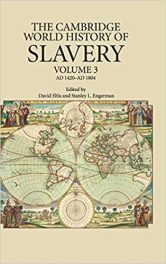 Book Review: The Political Thought of Frederick Douglass: In Pursuit of American Liberty
Book Review: The Political Thought of Frederick Douglass: In Pursuit of American Liberty
Author: Nicholas Buccola
Publisher: New York University Press
Book Review by: Paiso Jamakar
The ideas and life struggles of Frederick Douglass – the African-American slave who agitated for the abolition of slavery for much of his life – are the subject of this book.
Nicolas Buccola, the author, is assistant professor of political science at Linfield College in McMinnville, Oregon. His essays have appeared in a number of journals, including the Review of Politics and the Journal of Social Philosophy.
Buccola’s focus in the book is Frederick Douglas as a political thinker, and his unique perspective on slavery, being that he once actually lived as a slave.
American history has shown us that Frederick Douglass, who was born a slave in Maryland in 1818, was able to escape slavery and went to the North. He then became an anti-slavery activist through oratory and his writings on freedom and equality.
Douglass’ thoughts, actions and exhortations to people to help end slavery are examples that countered slave owners’ arguments in America’s anti-slavery movement that slaves do not have the intellectual capacity to lead independent, productive lives.
Frederick Douglass’ first of three autobiographies (written in 1845 when he was 27 years old) Narrative of the Life of Frederick Douglass, an American Slave, became instrumental in his campaign to abolish slavery.
Among the ideas and sayings of Douglass that Buccola discusses in this work are:
- “Every man is himself and belongs to himself,” which asserts that self-ownership was the foundation of Douglass’ liberalism.
- The progression from slavery to liberty to equality, which are all part of Douglass’ liberal democratic politics.
- “Each for all and all for each,” which embodies Douglass’ case for mutual responsibility.
- “Friends of freedom,” are Douglass’ ideas that advance the cause of freedom, including agitation, work, personal responsibility, and political reform.
- “Man is neither wood nor stone,” which is a discussion of top-down moral education in Douglass’ belief that man is more than an economic commodity.
- Limited government enables each person to become the author of his own unique life, which includes combating injustice, a strong belief of Douglass.
We believe that Douglass’ third and last biography, Life and Times of Frederick Douglass, helped end slavery. It was written in 1881 when he was 63 and it covered events through the 1861-1865 American Civil War, wherein some 618,000 people were killed. Ending slavery was one of the principal issues fought for in that conflict.
This is an insightful book by Nicholas Buccola on the life and ideas of Frederick Douglass. I urge you to make it an essential component of your library on liberty, a central theme of American history.






